The Crosstab Weekly Newsletter 📊 August 26, 2018
Using the N word and the two different midterm maps.
Welcome! I’m G. Elliott Morris, data journalist at The Economistand blogger of polls, elections and political science. Happy Sunday! Here’s my weekly newsletter with links to what I’ve been reading and writing that puts the news in context with public opinion polls, political science, other data (some “big,” some small) and looks briefly at the week ahead. Let’s jump right in! Feedback? Drop me a line or just respond to this email.
This newsletter is made possible by supporters on Patreon. A special thanks to those who pledge the top two tiers is written in the end notes. If you enjoy my personal newsletter and want it to continue, consider a recurring monthly donation of just $2.

Politics and Election Data
Links to last week’s must-reads in politics and elections data:
Most Trump voters would not care if he had used the N-word
If a tape of the president using the word does get released, its political impact may be muted
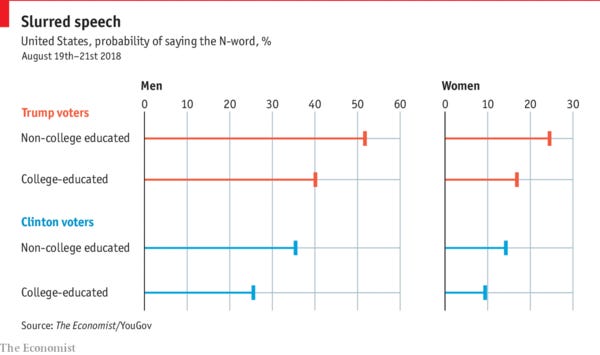
^This look at survey data about using the N-word is my piece for last week. In our weekly survey with YouGov, we found that nearly half of white Trump voters would “definitely” or “probably” vote for a candidate that they know for certain uses the word. Support for Trump was a key predictor of admitting you say they word: on par with age, education, and gender.
Republicans and Democrats agree: They can’t agree on basic facts
Nearly eight-in-ten Americans say that when it comes to important issues facing the country, most Republican and Democratic voters not only disagree over plans and policies, but also cannot agree on basic facts.
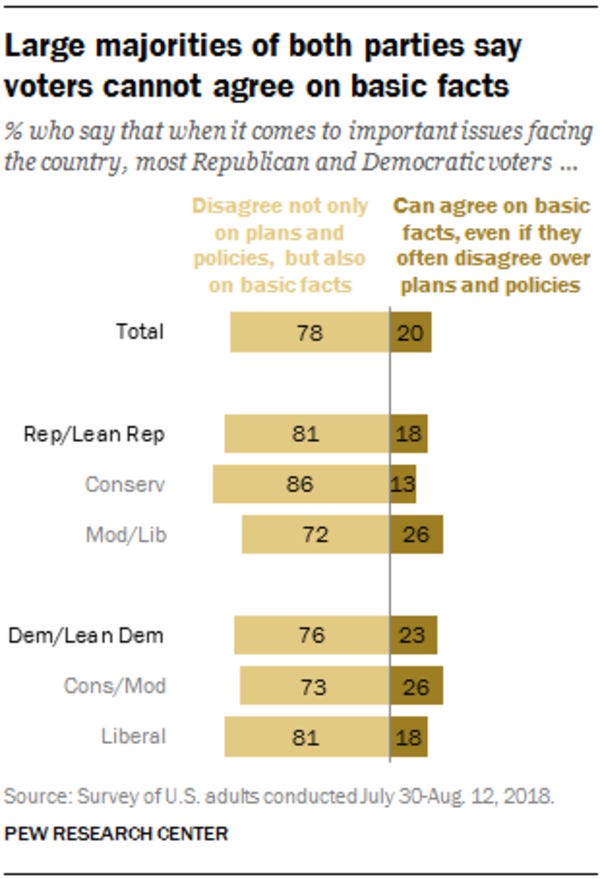
Why Even a Blue Wave Could Have Limited Gains
The divergent geography of 2018 means we will really have two midterm elections, and one favors Republicans. Mr. Wasserman is the House editor at The Cook Political Report.

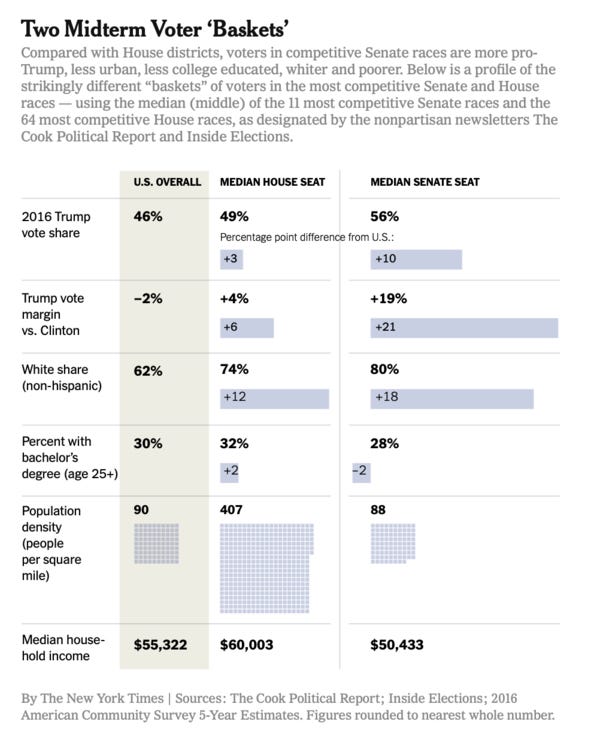
From Dave Wasserman on a very bifurcated House and Senate:
“In my time covering races professionally, I’ve never observed this little overlap between the battlegrounds of high-stakes Senate and House races. Of the 64 most competitive House races, only 14 are in states with highly competitive Senate races.
These are two truly different universes: The median competitive Senate seat gave Mr. Trump 56 percent in 2016, has a population density of 88 people per square mile and falls below the national average in educational attainment and income. But the median competitive House district gave Mr. Trump 49 percent of the vote, has a population density of 407 people per square mile and ranks above the national average in college graduates and income.”
These demographic and electoral differences between America’s two federal legislative chambers pose interesting questions to analysts and scholars, but one related question I’ve been stuck onrecently is how the representative institutions of our country can continue stable if they produce such disproportionate representation?
Trump Has Met the Public’s Modest Expectations for His Presidency
Just prior to the 2016 election, the public had fairly low expectations for Donald Trump’s presidency. Majorities of Americans said that if Trump was elected, he would not be likely to improve the way government works, set a high moral standard for the presidency or achieve other goals.
It's not just the uninsured — it's also the cost of health care
We still have an uninsured problem in the U.S., but we have a far broader health care affordability problem that hits sick people especially hard. Why it matters: It’s time to think more broadly about who’s having trouble paying for the health care they need.
Applications for U.S. diversity visa lottery remained near record in 2017
More than 22.4 million people applied in 2017 to a U.S. visa program that provides 50,000 green cards, or lawful permanent residence, each year through a lottery system, according to a Pew Research Center analysis of U.S. State Department data.
America’s stockmarket passes a milestone
Record or not, America’s bull market keeps going
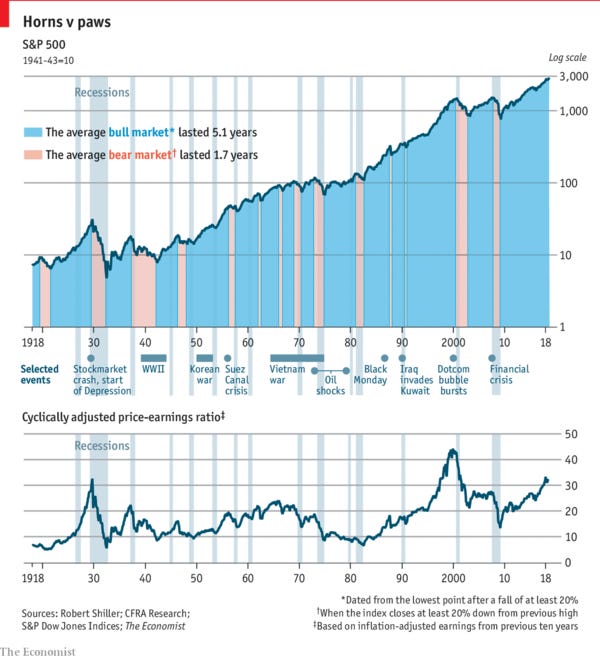
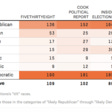
Election Update: How Our House Forecast Compares With The Experts’ Ratings
FiveThirtyEight’s Election Updates are back! This will be a regular feature in which we track the race for the House (and, eventually, Senate and governors’ offices) using our forecasts to highlight particularly interesting trends and races.
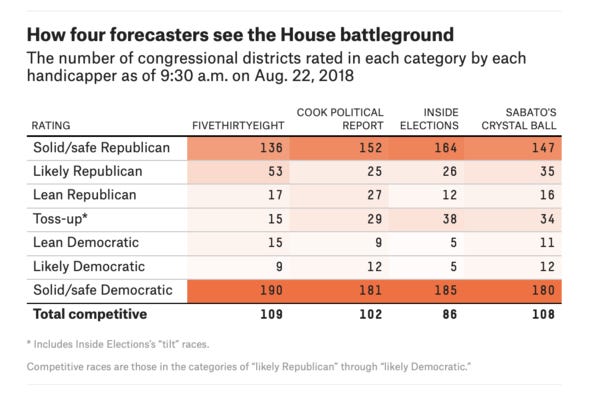
A note: forecasters using race ratings to predict outcomes of House elections have to solve a very tough question: if the race is going to shift left or right between now and November — and it is more likely to shift left than right — which seats do you move either way? By how much? If you’re using race ratings to predict vote share, you also might be increasing uncertainty in your estimates all the while increasing accuracy (not the worst crime if you ask me. More on this here.

Validating 2016 voters in Pew Research Center’s survey data
One of the most common challenges facing election surveys is the tendency for some respondents to say they voted when they did not.
New Political Science Papers
“Learning from Loss? How Interpretations of the Last Election Affect the Next One” by Seth Masket:
“I conducted a survey experiment among self-identified Democrats asking them to evaluate several potential candidates for president in 2020, as well as to describe an ideal ideological positioning for the Democratic Party. Half of subjects saw an identity politics interpretation of 2016, while a control group saw no such message. Those that saw the identity politics frame ended up with a lower evaluation of some female candidates than those in the control condition. What’s more, those in the identity politics condition disproportionately favored the Democratic Party moving rightward. The results suggest that the identity politics interpretation of 2016 may advantage more conservative, male Democratic candidates for 2020.”
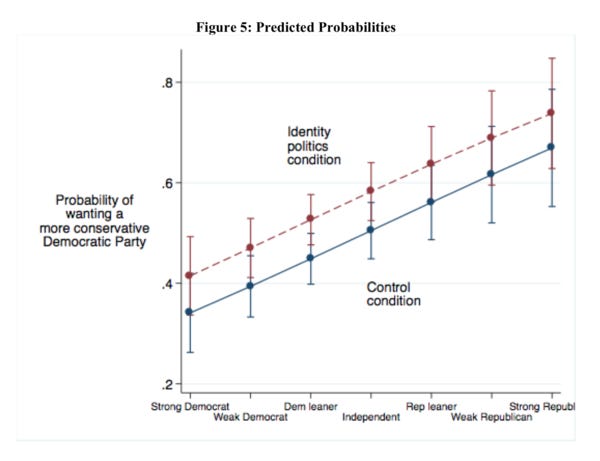
“Lethal mass partisanship: Prevalence, correlates, & electoral contingencies” by Nathan Kalmoe and Lilliana Mason:

Yes, you read that correctly: these esteemed political scientists are arguing that strong partisans are more likely to endorse violence against their political opponents, especially when elections are at stake.

Other Data and Cool Work
Bleak New Estimates in Drug Epidemic: A Record 72,000 Overdose Deaths in 2017
Fentanyl is a big culprit, but there are also encouraging signs from states that have prioritized public health campaigns and addiction treatment.
Burning Man attendees are spending more money than ever. These charts show why
It’s costing more and more to escape capitalism. Next week, 70,000 artists, spiritual seekers, and tech CEOs will throw on their 1960s faux-fur coats and join the annual social experiment of decommodification known as Burning Man.
Britain edges closer to a hard Brexit
Just as the EU is softening its negotiating stance

Temperature anomalies by country over time:
#Temperature anomalies 1880-2017 by country 🌡. No matter how you visualize it, it looks scary! #GISTEMP #dataviz #climatechange#globalwarming
Download / watch hi-res 🎞: https://t.co/ZdGPVTM5yOhttps://t.co/cAn9wG8FPU
9:15 AM - 25 Aug 2018
The exodus from Venezuela threatens to descend into chaos
Forced migration from the country might surpass the Syrian crisis
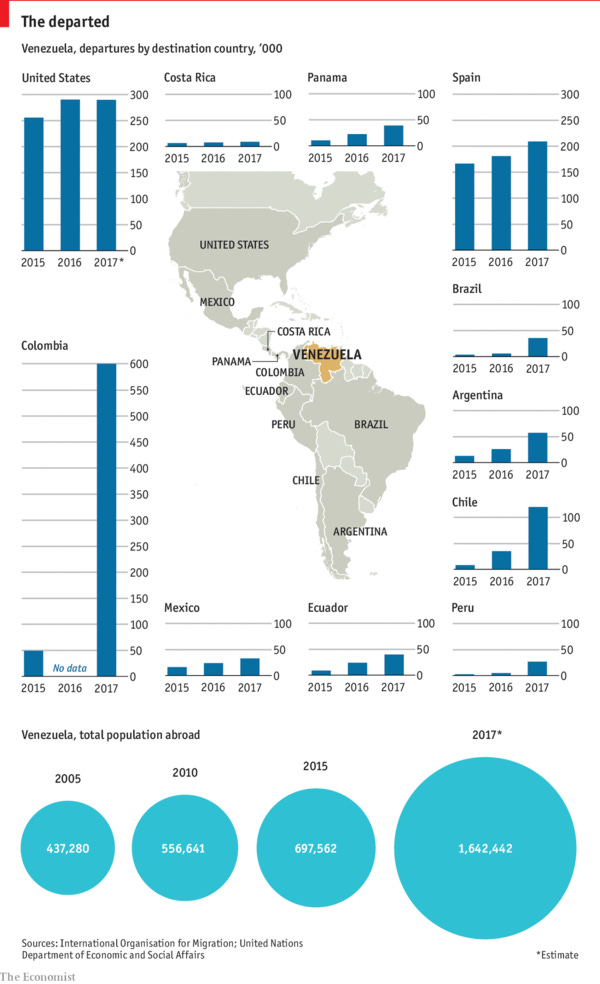

What I'm Reading and Working On
Without scooping myself: maybe something about this?
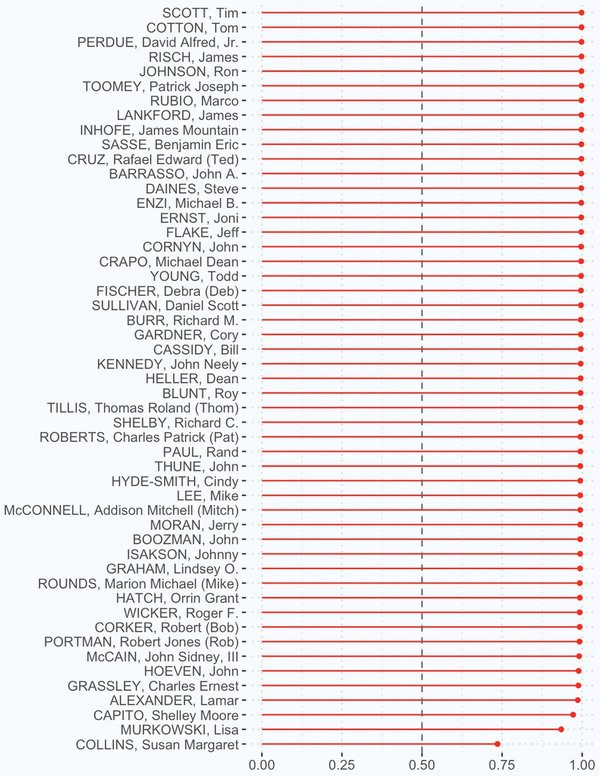
A quick project I worked on til 4 AM last night: predicting Senators' votes on SCOTUS nominations. Two scenarios: left: popular Kavanaugh, right: unpopular Kavanaugh. With McCain sadly gone from the chamber, (though he was unlikely to vote anyways), it all comes down to Collins https://t.co/dICXNiX9bd
12:25 PM - 26 Aug 2018

Thanks!
Thanks for reading. I’ll be back again next week! In the meantime, follow me online or reach out via email. I’d love to hear from you!

A Thank-you Note to Patrons
My weekly newsletter is supported by generous patrons who give monthly to my blog, including these individuals who have pledged especially charitable contributions:
Joshua, Ellen, Robert, Carol, Christopher, Edward, Laura, Alden, Daniel, Cameron, David, Ben, Austin, Katy, Dan, David, Justin, Ed, Calvin, Christina, & Mark
Darren, Guillermo, Brett, Walter, Uri, Fred, Sandeep, Jon, Justin, Hunter, Josh, Erik, Nik, Krishan, David, Logan, Bob, Darcy, Andrew, Joseph, Malcolm, Tal, Eric, Daniel, Gail, & Alan
Like the newsletter and want to help keep it going? Subscribe today on Patreon for access to private posts and other perks.



